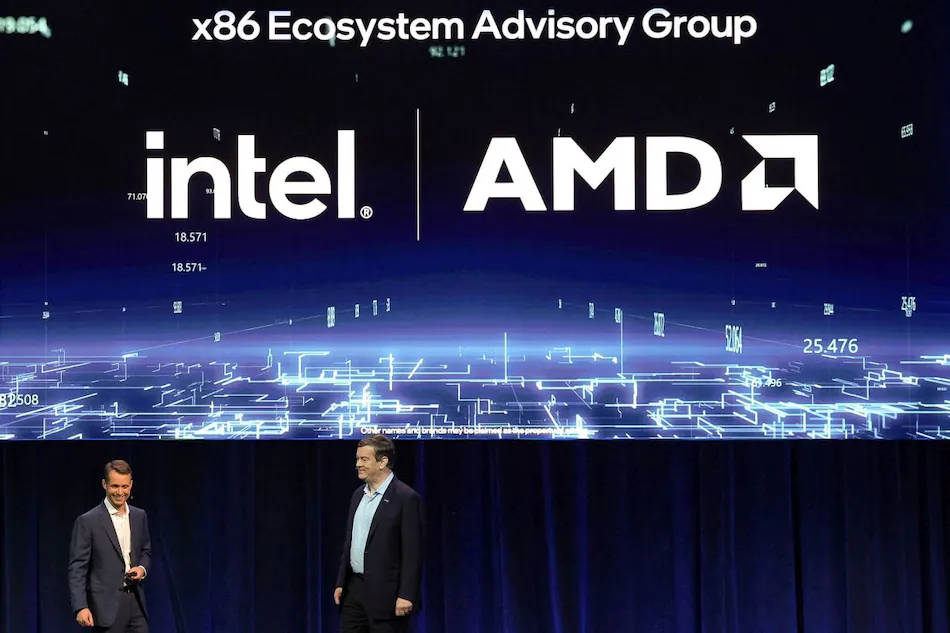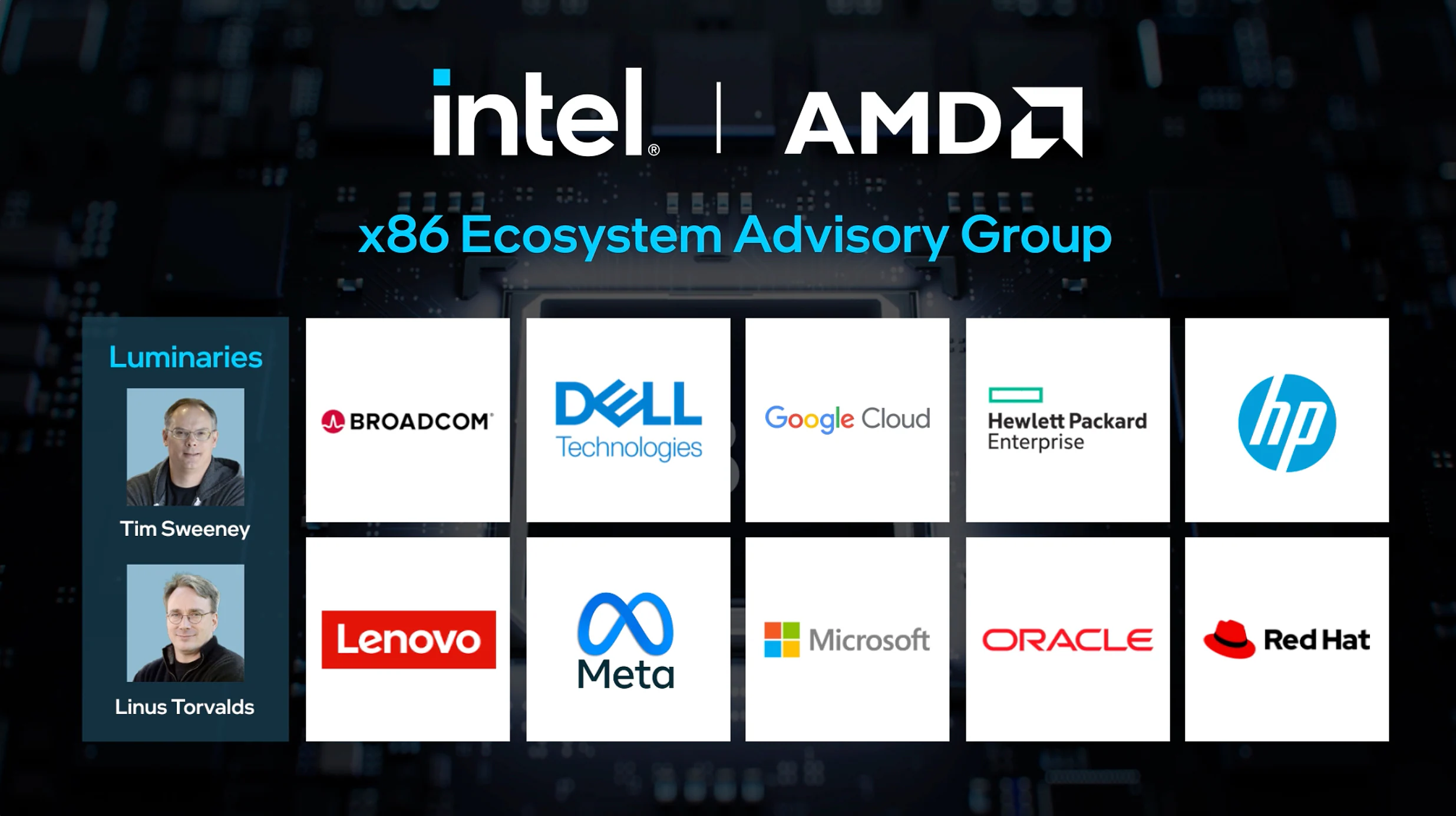
photo credit :intel
Intel and AMD on Tuesday announced a new partnership to create an x86 ecosystem advisory group to shape the future of the x86 architecture that it invented in the late 1970s, which has recently begun to face increasing competition from Cambridge-based Arm. While Intel and AMD are rivals, both chipmakers will work together with several partners including Lenovo, Dell, Google, HP, Microsoft, and Meta in order to ensure compatibility for x86 software across their processors, a benefit offered by Arm chips.
The formation of the x86 ecosystem advisory group was announced by Intel and AMD at the OCP Global Summit in California, as part of the chipmakers’ efforts aimed at “enabling compatibility across platforms” while easing the process of developing software for x86 platforms. The move comes as both firms are ceding market share to Arm over the past couple of years.
While x86 processors have dominated the PC and server sector for years after Intel released the first x86 processor four decades ago, more computers powered by Arm chips — such as Apple’s M-series and Snapdragon X-series — are easily accessible in 2024. The recent launch of the octa-core Snapdragon X Plus brought the cost of Arm-powered below the $800 (roughly Rs. 67,200) mark.
Research estimates that the market size of Arm-based servers was around $5.84 billion (roughly Rs. 49,070 crore) in 2023, with a projected compound annual growth rate (CAGR) of 14.3 percent from 2024 to 2030.
![]()

Linus Torvalds and Tim Sweeney are members of the x86 Ecosystem Advisory Group
Photo Credit: Intel
Arm-based chips have a unique advantage — the UK firm makes it mandatory for all chipmakers include support for running Arm software — a key advantage when it comes to compatibility across hardware made by different manufacturers.
The new x86 ecosystem advisory group aims to deliver similar software compatibility across AMD and Intel processors through the use of a “more unified set of instructions and architectural interfaces”, based on input from the x86 hardware and software communities.
Founding members include Dell, Broadcom, Lenovo, Google, Microsoft, HP, HP Enterprise, Oracle, and Red Hat. Linux kernel creator Linux Torvalds and Epic Games CEO Tim Sweeney are also members of the advisory group.
If the initiative is successful, it could result in better software compatibility across x86 platforms used on PCs, data centres, cloud, client, edge, and embedded devices along with faster adoption of new features.